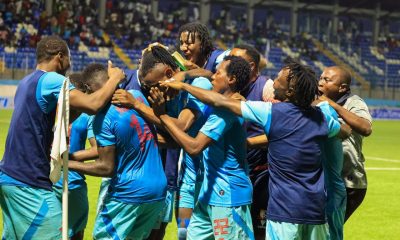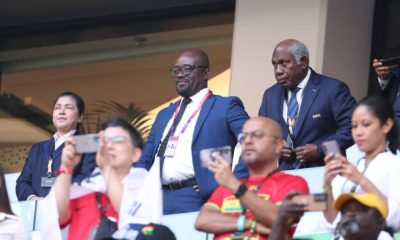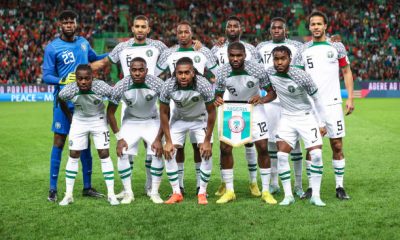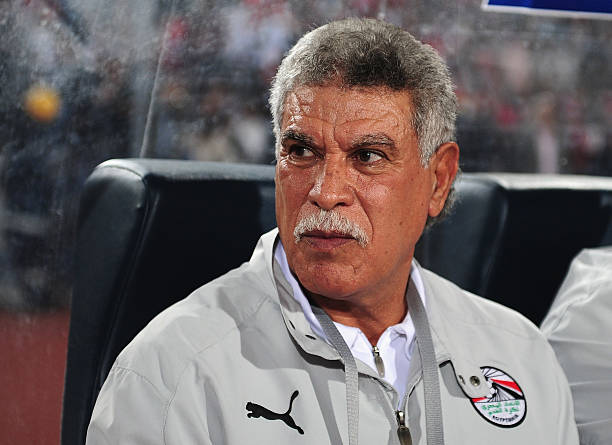
African football has been shaped by several legendary coaches who have left an indelible mark on the game. Whether leading their national teams to glory, developing young talents, or achieving remarkable success with club sides, these coaches have played a vital role in the continent’s football development. Some of them made history by winning multiple international tournaments, while others transformed their teams into powerhouses.
Here, we look at the top 10 greatest African coaches in football history and how they contributed to the game’s evolution.
1. Hassan Shehata (Egypt)
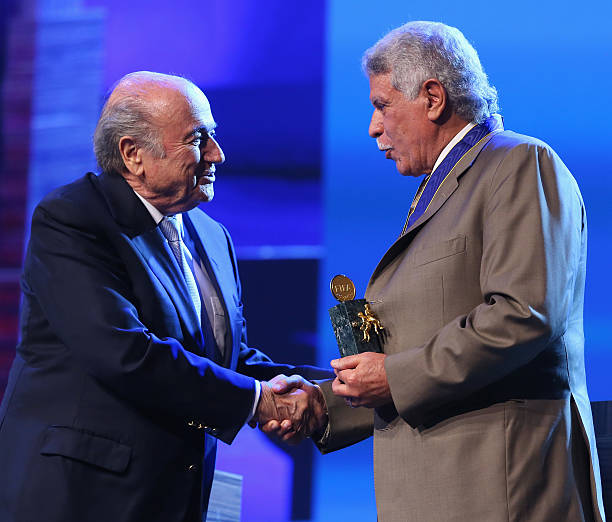
Hassan Shehata is widely regarded as one of Africa’s greatest-ever coaches. His incredible feat of leading Egypt to three consecutive Africa Cup of Nations (AFCON) titles in 2006, 2008, and 2010 cemented his legacy. Under Shehata, Egypt played a fluid, attacking brand of football that dominated the continent.
Despite his success with the national team, Shehata did not get the opportunity to coach Egypt at the FIFA World Cup due to qualification failures. Nevertheless, his dominance in African football remains unmatched, and he is celebrated as one of the best African tacticians of all time.
2. Charles Kumi Gyamfi (Ghana)
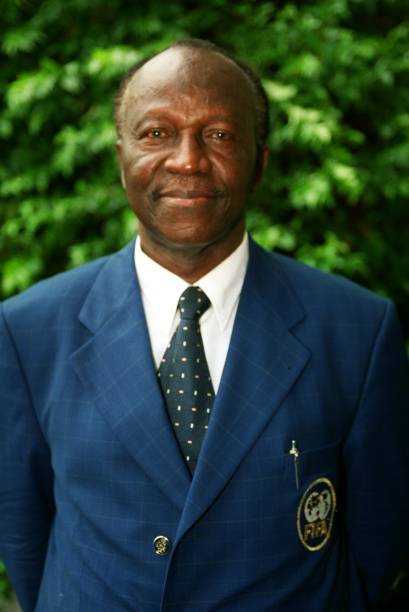
Charles Kumi Gyamfi was a trailblazer in African football, leading Ghana to three AFCON titles in 1963, 1965, and 1982. He became the first coach to win the tournament three times—a record later equaled by Shehata.
Gyamfi was instrumental in developing Ghana’s football identity, promoting tactical discipline and a strong team ethos. His coaching success laid the foundation for Ghana’s future as a footballing powerhouse on the continent.
3. Stephen Keshi (Nigeria)
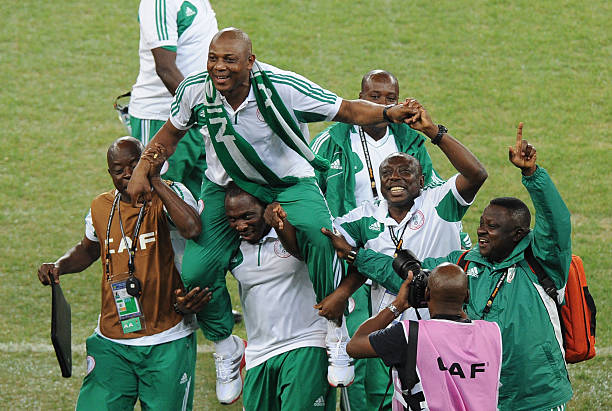
Known as “The Big Boss,” Stephen Keshi is one of only two individuals to have won the AFCON both as a player and a coach. He captained Nigeria to victory in 1994 and later led the Super Eagles to their third continental title in 2013.
Keshi also made history by guiding Togo to their first-ever FIFA World Cup qualification in 2006. He was a pioneer for African coaches, proving that homegrown managers could achieve success on the biggest stages. His legacy continues to inspire African coaches and players.
4. Pitso Mosimane (South Africa)
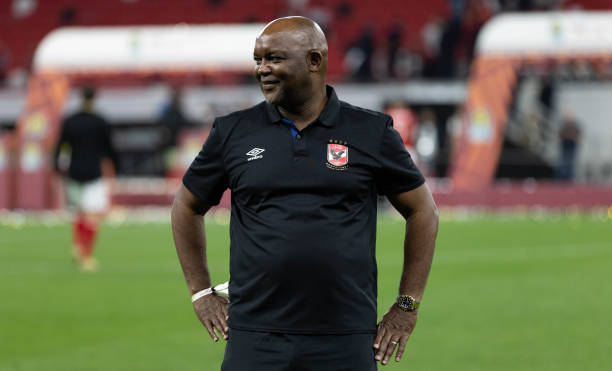
Pitso Mosimane is one of the most successful African club coaches in history. His managerial career took off with Mamelodi Sundowns, where he won multiple South African league titles and guided the team to the CAF Champions League title in 2016.
In 2020 and 2021, he won back-to-back CAF Champions League titles with Egyptian giants Al Ahly, cementing his status as one of the continent’s top coaches. Mosimane is known for his tactical intelligence and ability to get the best out of his players.
5. Mahmoud El-Gohary (Egypt)
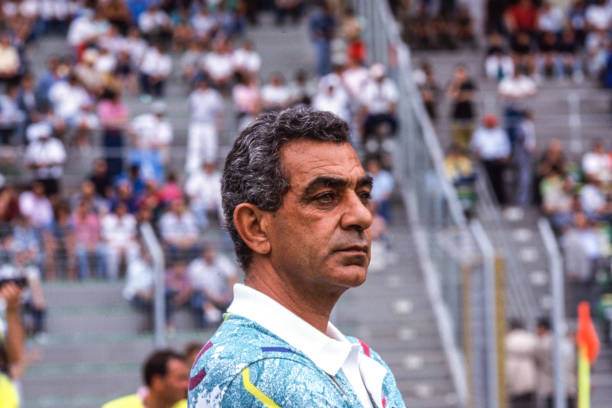
Mahmoud El-Gohary is another legendary Egyptian coach who had a profound impact on African football. He led Egypt to the AFCON title in 1998 and helped them qualify for the FIFA World Cup in 1990 after a 56-year absence.
El-Gohary is the only man to have won the CAF Champions League with both Al Ahly and Zamalek, Egypt’s biggest clubs. His tactical knowledge and ability to build winning teams made him one of the greatest African coaches of all time.
6. Hervé Renard (France, but African Football Icon)
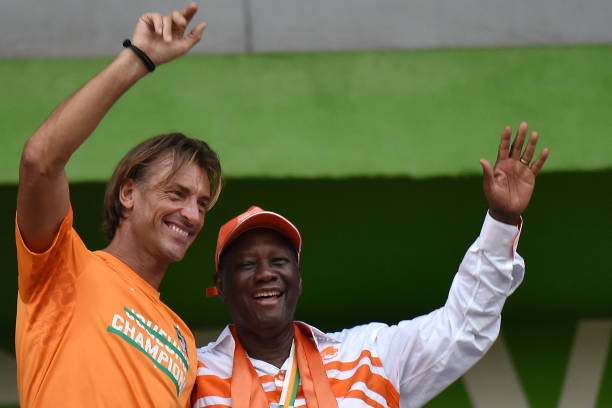
Though not African by birth, Hervé Renard is one of the most influential coaches in African football history. He became the first coach to win AFCON with two different nations, leading Zambia to their historic triumph in 2012 and guiding Ivory Coast to glory in 2015.
Renard’s success demonstrated his deep understanding of African football culture. He knew how to motivate and organize teams, making him one of the most respected coaches in the game.
7. Clemens Westerhof (Netherlands, but Transformed Nigerian Football)

Clemens Westerhof is credited with revolutionizing Nigerian football. He led the Super Eagles to their first FIFA World Cup appearance in 1994 and guided them to AFCON glory that same year.
Under his leadership, Nigeria played an exciting brand of attacking football and produced some of its greatest-ever players, including Jay-Jay Okocha and Rashidi Yekini. His impact on Nigerian football is still felt today.
8. Jomo Sono (South Africa)
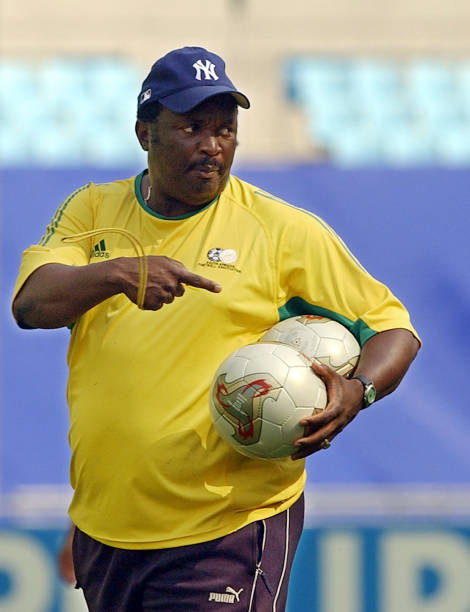
Jomo Sono is a South African football legend who made a name for himself as a player before transitioning into coaching. He has been a crucial figure in developing young talents through his club, Jomo Cosmos.
As a coach, Sono led the South African national team to the AFCON final in 1998. His contributions to South African football, both as a mentor and a tactician, have been immense.
CHECK OUT TOP 3 FREE BETTING PREDICTION SITES
Accuratepredict.com Soccerpredictions.net Betloy.com
9. Florent Ibengé (Democratic Republic of Congo)
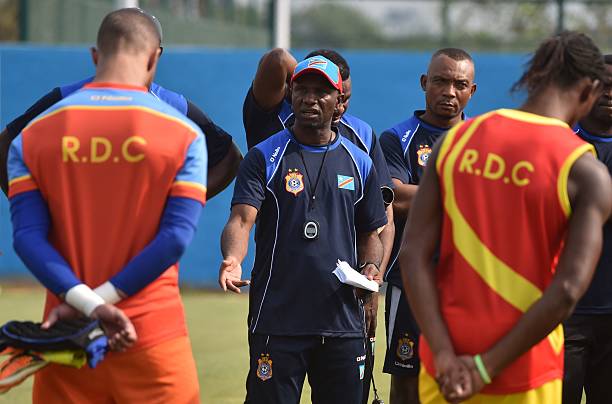
Florent Ibengé is one of the most respected Congolese coaches. He led the DR Congo national team to a third-place finish at AFCON 2015 and won the African Nations Championship (CHAN) in 2016.
At the club level, he took AS Vita Club to the CAF Champions League final in 2014. Ibengé is known for his disciplined tactical approach and his ability to build strong teams.
10. Desiree Ellis (South Africa, Women’s Football Pioneer)
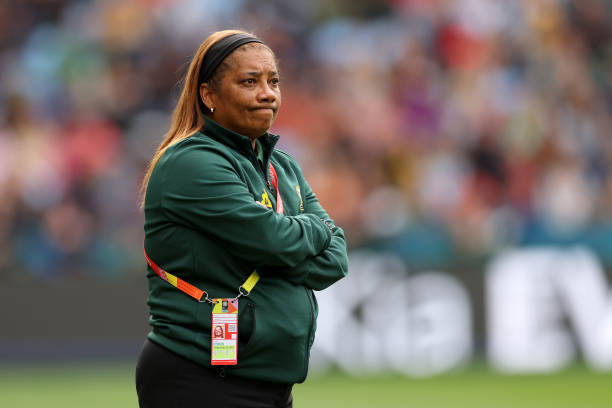
Desiree Ellis has been a trailblazer for women’s football in Africa. As the head coach of South Africa’s women’s national team, Banyana Banyana, she led them to their first-ever Women’s AFCON title in 2022 and guided them to their debut FIFA Women’s World Cup in 2019.
She has won multiple CAF Women’s Coach of the Year awards and has been instrumental in elevating women’s football in Africa.
SUGGESTED FOR YOU
The Unmatched Athleticism of African Footballers: What Sets Them Apart
Final Thoughts
These ten coaches have played pivotal roles in shaping African football. Their contributions go beyond just winning trophies—they have influenced playing styles, nurtured talents, and elevated African football on the global stage.
From Shehata’s dominance with Egypt to Keshi’s inspirational leadership and Mosimane’s club success, each of these tacticians has left a lasting impact. Their achievements continue to inspire a new generation of African coaches and players, ensuring that African football remains strong for years to come.


